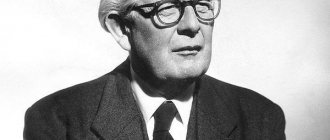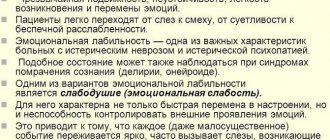Main features of infancy
During the first year of life, children experience various physical changes:
- motor skills are formed (general, fine);
- coordination of movements is normalized;
- the mechanism of muscle tone is improved;
- vision and hearing develop.
By the end of the period, speech and walking are actively developing.
The psychological features of the development of infants include the processes of memory formation and mental function. Some of the conditioned reflexes can be attributed to the manifestation of facial functions. For example, when a baby stops crying when a caring adult appears. The next stage is recognizing objects. After four months, babies begin to perceive melodic sounds. Then the child distinguishes mother from strangers. The older he gets, the wider the range of memorized objects and associations. Closer to one year (9–11 months), at the request of their parents, babies bring or point to a certain thing or toy. By the end of infancy, associative memory develops.
Mental activity is expressed in the desire to achieve a goal at any cost. This is typical for late infancy. Closer to 9 months, babies are able to solve simple spatial problems. This can be observed in the example of a sorter, when a baby selects the right hole for an element of a certain shape. Thinking during this period is flexible, children easily generalize the experience gained and are able to use it in similar situations.
Mental development in the first year of life is considered multichannel. Individual, social, and behavioral characteristics are formed. The participation of an adult and a developmental environment provide the child with full development.
According to Vygotsky, the mental life of an infant is characterized by an absolute lack of differentiation of mental functions. Primitive experiences and instinctive consciousness are formed under the influence of brightly colored emotional processes.
Characteristics of infancy in different psychological schools
The study of the formation of mental processes in children made it possible to understand the principles and patterns of the development of thinking and perception of the child’s personality. Many concepts and studies formed the basis of modern methods of early development and education.
Cultural-historical theory
In Vygotsky's theory, the infant is viewed as a maximally social being. This is due to his helplessness - without the assistance of his parents, he cannot interact with the world. The basis of mental life in the first year of life is interaction with the mother and other relatives. At the same time, the baby is an active participant in this interaction. It influences the behavior of the mother and other adults in his environment.
Another adherent of cultural-historical theory, Elkonin, proposed considering the baby and his mental development in the “child in society” system. Within its framework, the environment and the baby are not considered separately and in isolation, they are perceived as a single system.
Psychoanalysis
The founder of the theory, Freud, endowed infants with innate drives (instincts). It is their satisfaction, in his opinion, that becomes the main driving stimulus for the behavior of the infant, and subsequently of the adult.
The theory identifies several stages of development that occur sequentially. Children from birth to one and a half years are in the oral stage. This is due to the fact that they get the greatest pleasure from feeding and sucking the breast. Thus, Freud identifies the pleasure center in the mouth.
Erickson complements the theory by considering the entire complex of communication with the mother or an adult replacing her. Kindness, care, and responsiveness to the baby’s needs build his trust in the world. The lack of psychological contact leads to the opposite, wary attitude. Both scenarios affect the future life of the child, and even the adult.
Psychogenetics
Considers mental development and behavior from the point of view of the influence of heredity and environment. One of the leading authors of Piaget's theory assigned the main role in the formation of the psyche to the intellect. The speed and completeness of adaptation to the environment depends on its development. The theory gave the world a twin method for analyzing the influence of genetics and environment on development. Psychogenetics does not take into account personal motives, needs, and feelings.
Behaviorism
The theory considers behavior as an objective phenomenon of mental development. It is formed through the so-called social learning. It is determined by the environment, which is the main source of human mental development. Only behavior is studied, without taking into account emotions and intelligence. The founder of the theory, Watson, placed mental care for the baby at the forefront. He defined it as more important than physical. After all, it is he who shapes character and behavior. By mental development he understood the acquisition of new connections between stimuli and reactions to them, skills, and forms of interaction with the outside world.
Gestalt psychology
The theory believes that the baby's psyche is formed as gestalts mature. They form the constancy and meaningfulness of certain mental processes. Thus, for the first months of life, babies have only a vague, blurry image of an adult caring for them. Closer to six months, a more complete and distinct portrait is formed.
Psychology of raising children under one year old
We need to start with the fact that scientific articles about raising children, concerning how to deal with the whims of a baby, often contradict each other, since psychologists do not have a clear answer on how parents should behave in such difficult situations. Perhaps it would be right to follow your intuition, while simultaneously exploring modern trends in education.
If a child cries
Most often, it is the parents' reaction to when the child cries that causes controversy. Neither in the scientific literature, nor in the advice of relatives, there is no consensus on whether you should immediately respond to the baby’s cry or whether you should not give in to his whims if he has recently eaten and his diaper is dry.
There are two approaches to raising children, including:
- Traditional. According to this approach, you need to immediately teach your baby to sleep separately from his parents and from frequent awakenings at night. If a child is full and his diaper has recently been changed, but still cries, then this is nothing more than an ordinary whim from which the baby needs to be weaned. After some time, the child will understand that his screams do not bring what he wants and in the future he will behave calmer.
- Child-centric approach. Proponents of the theory, called “natural scientists,” are confident that in order for a child to have a healthy psyche, everything possible must be done to satisfy the child’s whims. The baby should not cry alone; mom and dad must understand his reaction to what is happening. If the parents have not found physiological reasons for the baby’s dissatisfaction, then it’s all about the discomfort that the baby is experiencing. So, after birth, the baby needs close contact with the mother. Only from the age of one does he begin to get used to a separate existence. According to the child-centered approach, the baby needs to be picked up on demand, he needs to be provided with co-sleeping, and he needs to be allowed to breastfeed as much as he needs.
How to raise independence in a child
Traditionalists are sure that if you follow the whims of a child, he will grow up to be an infantile and spineless person. Therefore, you need to raise your baby in such a way that, if necessary, he can entertain himself and fall asleep on his own.
According to the teachings of traditional psychology, a child under one year old should have his own crib or bedroom, and walks should be exclusively in a stroller, and not in the mother’s arms. The baby should suck on his mother's breast not on demand, but according to a schedule, and in order for him to satisfy the sucking reflex, you need to buy him a pacifier.
Followers of the child-centered approach consider it absolutely normal that a mother can leave maternity leave early by turning to a nanny for help. Another condition for raising children according to this theory is that parents go on vacation without children, otherwise the child will be very attached to them and will not be able to become independent.
“Naturalists” believe that a baby needs care and affection, that he needs parental love and care, so that after being satisfied with it, he confidently steps into the world of adults and takes his place in it.
Followers of the child-centered approach allow their children to sleep with them, because this way they sleep better, the mother gives breasts on demand, without observing a regimen, and neither the place nor the time of breastfeeding matters. Also, mothers actively use a sling, which allows the mother to always stay close to her child.
Supporters of the movement consider it absolutely normal that the baby is always with his parents and is sent to his grandmother only when he wants it. According to the child-centered approach, children who are deprived of parental affection at an early age will definitely try to compensate for the lack of love and attention when they become adults.
Raising young children remains a controversial issue, so parents choose the method of raising babies that seems most suitable to them.
When deciding how to raise their child, mothers and fathers should take note - if your baby smiles and looks happy, he will not face any psychological problems in the future, even if the neighbor downstairs or a caring grandmother considers your parenting methods to be incorrect.
Structure and dynamics of leading activity in infancy
The leading activity of the first half of infancy is emotional communication with adults. From the age of three months, the baby looks for it and attracts the mother’s attention.
In the second half, the child becomes more mobile. He can roll over on his own, learns to grab, sit, and crawl. He is increasingly focused on studying the world around him. Manipulation with objects closer to 9 months becomes the basis of his activity. He cannot yet use them for their intended purpose, but he finds his own use.
To move on to objective activities (using things for their intended purpose), he needs the help of adults. Changing the type of activity closer to the year means the end of the infancy period and the beginning of the early childhood stage.
The importance of breastfeeding
However, the child remains attached to the mother on an emotional level for a very long time. This is why it is so important to ensure that your baby is breastfed.
- During breastfeeding, deep contact is established between mother and baby, which contributes to a better understanding of the baby's needs.
- During breastfeeding, the baby feels completely protected, and this feeling of security accompanies him for a long time.
- Sometimes a baby demands to be put to the breast not because he is hungry, but because something is bothering him.
Communication between infants and adults
The first year of life, the child is completely dependent on the adults around him. His basic need is a feeling of security. It is this feeling that makes the baby understand that everything is fine with him, there are no threats. If this need is fully satisfied, he is open to the world and ready for full contact with it.
In psychology, the concept of “mother-child dyad” or “Prime-we” was introduced for the stage of infancy. It determines the mental community of the baby and the adult caring for him. During this period, the child is not aware of himself, is unable not only to distinguish his Self, but also perceives his own limbs as foreign objects. Therefore, the adult becomes the center of interaction with the child and the child with the world.
The first half of the year is characterized by situational and personal communication between the baby and mother. It manifests itself as a revitalization complex that marks the end of the newborn crisis. It is characterized by focusing on the mother's face, a welcoming smile, and active movements that attract the attention of an adult. This is purely emotional communication. The mother’s kindness towards the baby during this period is the key to normal mental and cognitive development in the future.
The second half of the period is characterized by situational business communication. It lays the foundations for objective activity. The child enters this stage after he learns to grasp objects. In the process of contact with an adult, he uses not only facial expressions and sounds, but also gestures, postures, and various things. He can show, bring closer, remove, throw, demand any toy. Babies begin to feel the need for joint activities with their mother.
During this period, attachment formation occurs. It is the key to the child’s psychological health. There are three stages of its formation:
- The infant seeks contact and closeness with any adult in sight.
- Begins to distinguish “us” from “strangers”.
- Attachment to the most significant adults is formed.
It is full communication with the baby that allows him to successfully develop physically, mentally, mentally.
Should I teach it to my hands?
The baby's psychology forces him to perceive being in his mother's arms as a remedy for all troubles. The debate about whether or not it is necessary to teach a child to hold hands has been going on for a long time. The arguments given by supporters and opponents of frequent holding of the baby in their arms are weighty and impressive. But, apparently, every mother must decide this issue on her own.
A lot depends on the type of nervous activity of the baby and his state of health.
If your child is phlegmatic or melancholic, he is more relaxed about the need to be alone in his crib. If your baby is sanguine or choleric, you should not demand such a feat from him. Children, who have recently been called hyperactive, require special attention from the first days of life.
Main neoplasms of infancy
The main acquisitions of infancy are the ability to walk and the first consciously spoken words. The ability to move without the help of an adult takes the child to a new stage of cognitive activity. In psychology, he is considered as a subject capable of performing independent actions. This is due to the emergence of motivating needs. They mean emotionally charged images of objects that appear in the baby’s memory, with which some of the needs are associated. That is, although the child will show or grab his sippy cup or cup when drinking.
By the end of infancy, children master voluntary actions with objects. From manipulation they gradually move to substantive activity.
But for this successful transition you need the help of an adult. Only by imitating their parents will the child understand how to use this or that thing for its intended purpose.
By one year the child will have mastered:
- the purpose of simple objects (spoon, plate, chair);
- ways of acting with them (eating with a spoon, sitting on a chair);
- technique of performing the action (you need to take a spoon in your hand and try to scoop up food).
A child around one year of age becomes emotionally separated from the mother or other significant adult. Thanks to the emergence of speech, the social situation changes and new opportunities for communication appear.
A new development in children aged about one year is the transition from passive speech through the autonomous to active phase. If previously the child only understood intonations and part of the words, now he is developing his own “bird” language. He is understandable only to the closest people who come into contact with him on a daily basis.
Autonomous speech is characterized by:
- The ambiguity of the same words depends a lot on the emotional coloring and the situation.
- The discrepancy with normal speech is not phonetic or articulatory.
- It is difficult to find a connection between spoken words. The phrases are more like emotionally charged exclamations.
Many psychologists associate the appearance of autonomous speech with the beginning of the crisis of the first year of life. And the transition from it to the usual one is with its completion.
Crisis of one year
The second transitional moment in the development of the child’s psyche. The basis of the crisis is the conflict between the skills he has acquired (walking, manipulating objects), the desire to show independence and the restrictions imposed by adults. On the one hand, he wants to do everything himself, but they don’t allow him, on the other hand, he is just developing his speech and fully communicating, he cannot defend his rights, and he cannot do without the help of an adult.
The crisis is characterized by:
- violation of sleep and eating patterns;
- mood swings, bright outbursts of emotions;
- negative reaction to any ban;
- increased need to be near a significant adult.
During this period, it is important for parents to develop a general strategy of behavior and correctly set personal boundaries and prohibitions. It is important not to punish the baby, since he still won’t understand the reason, not to scream, not to scold him.











